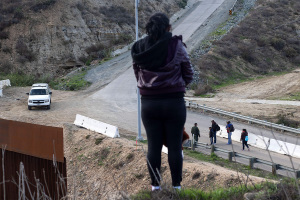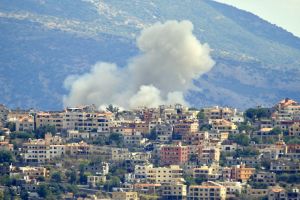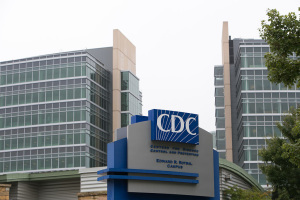European Methodist Festival
European Methodists gather for the first time since the Cold War
POTSDAM, Germany – More than 900 Methodists from across Europe gathered to celebrate their common Wesleyan heritage for the first time since the Cold War. Despite differences in language, history, culture, church structure and geography, the European Methodist Festival brought together congregants from Kazakhstan to Ireland, Sweden to Italy, Bulgaria and Portugal, July 30-Aug. 3.
Featured in the event was the “EmK Mobil” or loosely translated, the “Methodistmobile.” The state-of-the-art bus, run by the German United Methodists, travels throughout mainland Europe besides conferences and church gatherings as a mobile café. Within the bus, attendants gathered around its meeting areas, mini television theater and kitchen. Among them, Bulgaria’s youth coordinator, Nikolay Valchev shared his vision for the new Internet café mission in Varna. As he listened to the sounds of the gospel choir workshop outside, he noted, "I want them to come give a gospel choir concert in Varna. That would be great mission event."
Peter Steinvig, Danish Methodist and Copenhagen Gospel Festival creator, led the workshop.
Leading a daily Bible study was the Rev. Elena Stepanova from the Russian town of Ekaterinburg. Stepanova, leader of a prison ministry, recounted the hardships and challenges she faced throughout her service. She recounted the deep disappointments she and her colleagues felt when some inmates, upon release, lied to, abused and stole from church workers, eventually landing back in prison.
"The dilemma is not whether to help or not," Stepanova explained. "The issue is not whether to proclaim love to our neighbors, but how to do it – how to love."
After the Bible study, British Methodist Edward Adams and his wife from Nottingham, England, said Stepanova’s words resonated with them. "Our son is in prison for the third time," he said. "You can see why what Elena said means so much to us."
Liz and John Marriott who spent four days on their motorbikes traveling from their home in Loughborough, England, to Berlin said the conference is their vacation and "a gift from God." The Marriotts camped at the conference site next to a Swede, a Dane and an Austrian.
John, who is "testing the waters" of a call to ordained ministry, admitted he was both surprised and encouraged to find such a wide age range and diversity of participants. Liz, who works for 3M Co., said she was pleased to have the chance to try out her French and German language skills in the small, traditional, Wesley "class" groups that were a daily feature of the festival.
The Rev. Randy Day, top staff executive of the United Methodist Board of Global Ministries recalled the first time he heard the festival discussed. Day and the board first brought up the idea during their meeting in Moscow, Sept 11, 2001 after the terrorist attacks in New York.
"Communications is so important in the global church," Day said. "Nothing surpasses face-to-face meetings. … Americans don’t appreciate how difficult it can be to get visas to attend these events, and for everyone who is here, there will be more disappointed people back home who couldn’t get visas. … I was really touched by the fact that the Russian delegation spent 40 hours on a bus coming here."
Bishop Walter Klaiber, whose Central European United Methodist Conference played a major role organizing the festival, believes European Methodists have a contribution to make to world Methodism and to an increasingly secular Europe.
"We are in a political social movement because of a uniting Europe," he said. "We must grow together. ... The church can establish new borders and try to make the fabric of new Europe more human and something not defined only by economic bureaucrats."
"We’re in a very difficult mission field," Klaiber observed. "We can’t just take other mission models and expect they will work here.
The festival itself was an example of new models of European cooperation. For the first time ever, British and Irish Methodists participated in large numbers – 300 – in a European Methodist event. Swedish Methodists, Dutch Methodists and others from Spain, Portugal and Italy all came to Potsdam. Festival participants spoke in 20 different mother tongues.
British European Secretary Colin Ride, whose office also played a key organizational role in the festival, said he hadn’t anticipated people’s sheer delight at the discovery of their unity and common purpose.
"We took a huge risk getting together this lot of people," he said. "I think it will change the church. … This event will leave its mark."
"Smaller churches are doing amazing things," reported Moira Sleight, editor of the weekly British Methodist Recorder newspaper. "The Macedonian church is supporting an entire refugee camp of Romany people (indigenous European gypsies) with (medical) drugs and watermelons. They are a tiny church."
Steve Braudt, an artist and youth pastor from Iowa, among the handful of Americans at the festival was amazed by the unity within the European Methodists.
"I’ll take away a renewed sense of oneness with the world," he said. "The European churches’ challenges include huge and vast areas with few resources to do their work. But the church here sees it as an opportunity."



























